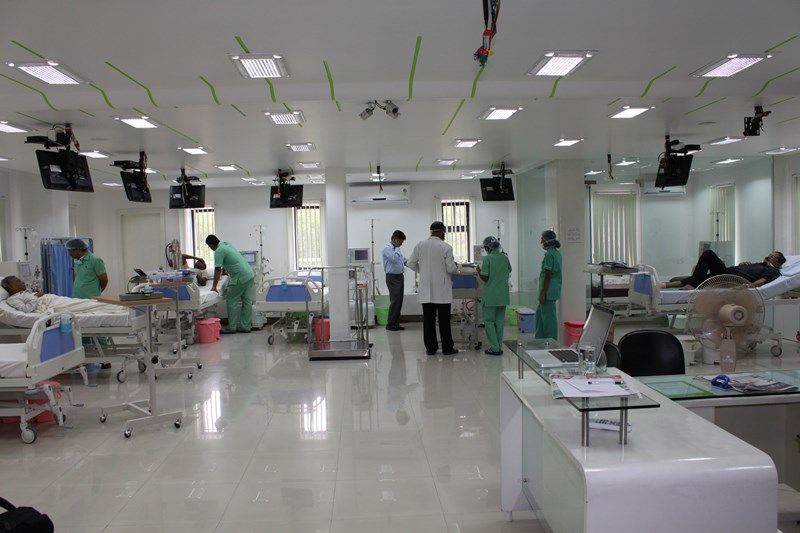How Sensus Labs aims to change the offline shopping landscape with its indoor GPS & navigation system
With its IoT-enabled precision navigation solution that offers up to 30 cm level accuracy, San Francisco-based Sensus Labs aims to make indoor navigation of people and assets easier. The firm also offers granular analytics for retailers and brands to gather data and engage with customers online and offline.
The ability to seamlessly interact with customers across all shopping channels has made omni-commerce the buzzword among brands and retailers. So online players like Amazon are exploring offline strategies with Amazon Go (brick-and-mortar retail store) while offline players like Walmart are looking for a share of the of ecommerce pie.
Enter Sensus Labs, a San Francisco-based company that offers indoor positioning and navigation solutions for use across multiple sectors. Aviral Chandra, the Chief Executive Officer of Sensus Labs, says,
It is relatively easy to gain insights from online shopping patterns. Offline shopping patterns, on the other hand, are more difficult to comprehend. But it can be done. Understanding in-store shopper and employee activity requires accurate location data.
With its location-sensor based analytics platform, Sensus Labs aims to provide granular analytics for retailers and brands to gather data and then engage with customers online and offline.
Offline retail may be the biggest market for their solution, but Sensus Labs feels their solution - essentially an indoor GPS and navigation system – can be leveraged in many sectors.

The story so far
An Internet of Things (IoT) startup, Sensus Labs was founded in 2014 in India; the US entity was set up in 2016. The core members of the venture comprise Aviral Chandra (Founder, CEO), Tom Martell (COO), Daniel Lewis (Head of Product) and Farhan Naqvi (Head of Investments, Corporate Development).
Aviral recounts the Sensus Labs journey over the last three years and how the idea evolved from a techie’s fascination in college to a full-fledged cross-border venture in a few years. The team started out with the goal of providing indoor GPS solutions powered by smartphones and even raised funds for product development. They experimented with technologies such as Wi-Fi and Bluetooth and tried to solve the pain point of providing navigation solutions inside buildings.
But they soon realised that existing technology solutions weren’t enough to solve their problems. So, they decided to take a new approach and start from scratch.
While cameras and Bluetooth beacons are some of the popular technologies used in the location intelligence space, Sensus Labs uses Ultra-wideband(UWB) sensors, which the team says come at a lower cost compared to beacons but can still provide higher accuracy.By leveraging the power of modern IoT sensors and smartphones, Sensus Labs believes they have cracked the pain point.
Aviral says their current solution comprises a sensor with the form factor 4cm x 7cm x 1cm. It has a 40-hour battery life and is capable of achieving an accuracy level of 30cm in indoor spaces. The goal is to locate people and assets with high levels of precision in any indoor space or GPS-denied environment.
Putting the focus on retail
With people spending a large part of their days inside buildings, Sensus Labs aims to help people and brands get what they are looking for in a faster and more efficient manner. For example, by placing sensors at airports, Sensus Labs could help passengers take the most optimal route to their boarding gate. It could allow airline personnel an overview of where their passengers are and quickly usher them to board their plane. Optimising this could help airlines save on their bottom line in the long run.
The market exists across industries, including hospitals, museums and warehouses, but Aviral aims to focus efforts on retail at this stage.
Aviral said that Sensus Labs has completed a pilot with a Chicago-based retailer and is in the process of starting a pilot with one of the biggest retailers in the world. He refused to name the companies, citing nondisclosure agreements.
Revenue model and strategies
Sensus Labs currently has a 10-member team and Aviral says the aim is to grow it like a SaaS venture. The goal is to keep the team lean and work with full-service contract manufacturers for sensor production and with deployment partners for distribution. Aviral says,
We have identified and set up partnerships with full-service contract manufacturers in India to produce our sensors.
Sensus Labs aims to absorb sensor costs in the SaaS licences. As a part of the deal, the SaaS solution includes a home screen dashboard with access to multiple features like interaction analytics, path analytics (interaction between employees and shoppers), queue analytics, HeatMaps and mobile device detection.

This helps understand the context of the user, asset or machinery with a high level of detail, enabling many present and futuristic applications. For example, mobile device detection can help retailers differentiate between first-time shoppers and repeat customers. Retailers could also gather data points of customers entering and leaving their stores. He says,
Current applications are focused on creating operational and contextual awareness for physical retailers in the US. This enables performance and engagement analytics for retailers.
The Sensus Lab offering offers a wide range of features such as indoor positioning, presence detection, turn-by-turn navigation, indoor maps and location-based messaging.
Talking about their USP in terms of patents, Aviral says Sensus Labs has filed for multiple patents related to technology and battery optimisation and has received a “patent pending” status for one of their applications.
Aiming to be ‘acquisition-ready’
While the current focus is a more hands-on approach with manufacturing partners, Sensus Labs envisions a long-term scenario where they could work with an ARM-like revenue model, where OEM manufacturers could use their sensor design and pay royalties for using them.
Sensus Labs is currently raising funds through PropelX, a tech-focussed crowdfunding platform. Aviral also noted that Sensus Labs recently raised an undisclosed amount in funding from Globevestor, and also received their first tranche from them.
With their indoor positioning and navigation tech falling in line with efforts at concept stores like Amazon Go and synergies with other players, Sensus Labs aims to be “acquisition-ready” by late 2019 or early 2020.
Aviral says Sensus Labs aims to achieve a net run-rate of $5 million by the end of 2019. This is contingent on two out of 25 pilots converting at full scale (1,000 stores), and Aviral believes they will have a high growth rate after that.
Other players in the location intelligence space include RetailNext, Waze and HyperTrack. Google also offers an indoor Maps integration, in addition to their more popular Google Maps (for outdoor navigation).
But Sensus Labs claims that though they may be the “underdogs” at this stage, their higher accuracy levels and cost effectiveness compared to the competition will take them a long way.
Website- Sensus Labs








